
| Back To Meditation Home Page |

Custom Search
|
Are we Living in the Last Days...End Times? See Breaking News |
 |
| __________________________ |
 |
_________________________ |
| __________________________ |
As You Study the Biblical Last Days in the News... Discover the Bible As Well |
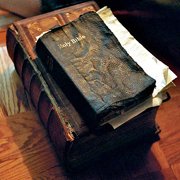 |
| __________________________ |
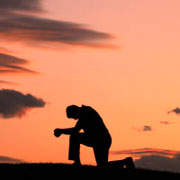 |
| __________________________ |
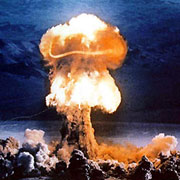 |
| __________________________ |
To Know God's Word Read Scripture |
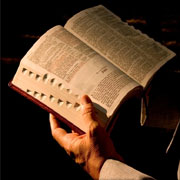 |
_________________________ |
To Read God's Word Your Reading Schedule |
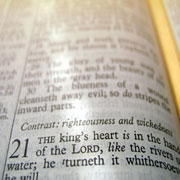 |
_________________________ |
 |
| __________________________ |
Thought Provoking Articles for Your Meditation |
 |
_________________________ |
Iraq in the Bible |
|---|
Israel is the nation most often mentioned in the Bible. But do you know which nation is second? It is Iraq! However, that is not the name that is used in the Bible. The names used in the Bible are Babylon, Land of Shinar, and Mesopotamia. The word Mesopotamia means between the two rivers, more exactly between the Tigris and Euphrates Rivers. The name, Iraq, means a country with deep roots. For instance, did you know? |
| The Garden of Eden was in Iraq. |
 |
| Mesopotamia, which is now Iraq, was the cradle of civilization! |
| Noah built the ark in Iraq. |
 |
| The Tower of Babel was in Iraq. |
| Abraham was from Ur, which is in Southern Iraq! |
 |
| Isaac's wife Rebekah is from Nahor, which is in Iraq. |
 |
| Jacob met Rachel in Iraq. |
| Jonah preached in Nineveh - which is in Iraq. |
| Assyria, which is in Iraq, conquered the ten tribes of Israel |
| Amos cried out in Iraq! |
| Babylon, which is in Iraq, destroyed Jerusalem. |
| Daniel was in the lion's den in Iraq! |
 |
The three Hebrew children were in the fire in Iraq (Jesus had been in Iraq also as the fourth person in the fiery furnace!) |
 |
Belshazzar, the King of Babylon saw the "writing on the wall" in Iraq. |
 |
| Nebuchadnezzar, King of Babylon, carried the Jews captive into Iraq. |
 |
| Ezekiel preached in Iraq. |
 |
| The wise men were from Iraq. |
 |
Indeed Iraq is a country with deep roots and is a very significant country in the Bible. No other nation, except Israel, has more history and prophecy associated it than Iraq. The once great city of Babylon, where the Jews were held captive for 70 years, became a symbol of power, materialism, and cruelty. |
 |
The city of Babylon was the capital of the ancient land of Babylonia in southern Mesopotamia. It was situated on the Euphrates River about 50 miles south of modern Baghdad, just north of what is now the modern Iraqi town of al-Hillah. Prophecy by Jeremiah concerning the destruction of Jerusalem by Nebuchadnezzar:
Prophecies by Isaiah concerning the destruction and future of Babylon:
Babylon is Akkadian "babilani" which means "the Gate of God(s)" and it became the capital of the land of Babylonia. The origin of the name Babel in the Bible means "confused" (Gen 11:9) and throughout the Bible, Babylon was a symbol of the confusion caused by godlessness. The name Babylon is the Greek form of the Hebrew name Babel. Babylon lies in the land of Shinar as revealed in the Bible (Gen 10:10) and its general location has never been in doubt. The Bible reveals that all false systems of religion began in the land of Babylon and will have their consummation from the spirit of Babylon in the last days. It is interesting to note that every organized system of religion in the world today has traces of ancient Babylon. The Bible records in Genesis 10:10, that, after the great flood, all men spoke one common language and a man named Nimrod built a city and established a common religion. Nimrod was a descendant of Noah's son, Ham. Genesis 11:1-9 describes the building of the city and its famous tower "whose top may reach unto heaven." It also records how God came down and punished the people's arrogance by creating a confusion of different languages and possibly their racial distinctions. This way man would be forced to obey God's original command to "be fruitful and fill the whole earth." It is interesting that the materials used to build the Tower of Babel were the same as those employed for the construction of the great ziggurat of Babylon and similar ziggurats, according to ancient building inscriptions. |
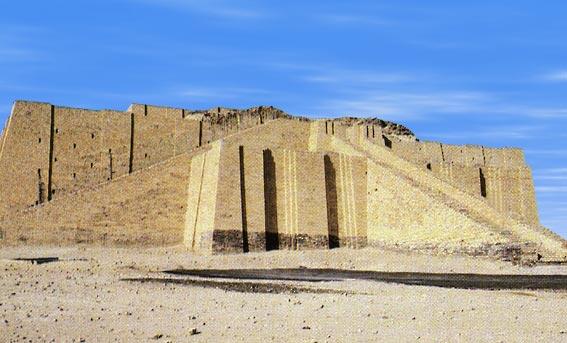 |
| The Ziggurat at Ur |
There is evidence that man has lived in this area of Mesopotamia since the beginning of civilization. The first records indicate that Babylon was established as a city around the 23rd century BC. Before this it was a provincial capital ruled by the kings of the city of Ur. Then came the migration of the Amorites. Babylonia was an ancient empire that existed in the Near East in southern Mesopotamia between the Tigris and the Euphrates Rivers. Throughout much of their history their main rival for supremacy were their neighbors, the Assyrians. It was the Babylonians, under King Nebuchadnezzar II, who destroyed Jerusalem, the capital of the Kingdom of Judah, and carried God's covenant people into captivity in 587 BC. Around 2000 BC Hammurapi emerged as the ruler of Babylonia. He expanded the borders of the Empire and organized its laws into a written system, also known as the Code of Hammurapi. About this time Abraham left Ur, an ancient city located in lower Babylon, and moved to Haran, a city in the north. Later, Abraham left Haran and migrated into the land of Canaan under God's promise that he would become the father of a great nation (Genesis 12). |
 |
As previously mentioned, in 587 BC, the Babylonians destroyed Jerusalem and carried the leading citizens of the Kingdom of Judah as prisoners to Babylon. The Hebrew prophet Jeremiah had foretold that the Jews would be free to return home to Jerusalem after 70 years. The Lord had encouraged His people through Ezekiel and Daniel who were also captives in Babylon. During this 70 year period of captivity, the Persians conquered Babylonia, and the Babylonians passed from the scene as a world power. |
 |
One of the main aspects of Babylonian culture was a codified system of law. Hammurapi's famous code was the successor of earlier collections of laws going back to about 2050 BC. The Babylonians used art for the national celebration of great events and glorification of the gods. It was marked by stylized and symbolic representations, but it expressed realism and spontaneity in the depiction of animals. |
 |
The Old Testament contains many references to Babylonia. Gen 10:10 mentions four Babylonian cities, Babel (Babylon), Erech (Uruk), Accad (Agade) and Calneh. These, along with Assyria, were ruled by Nimrod. Iraq is in the news every day, as it has been for many, many years. The Lord has a plan for Iraq, and we see it unfolding every day. Current events, Biblical history and biblical prophecy overlay each other every day. The land of Iraq is one place we can see the evidence of the Lord's plan in action for the End Times. |
Finally as always, remember. Be blessed and meditate or meditate and be blessed!!!!.. the choice is yours!! |